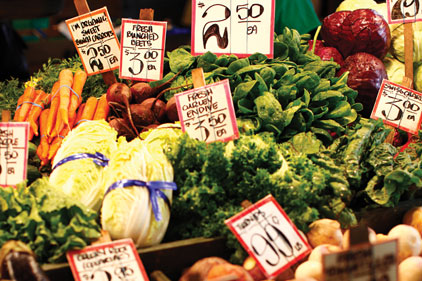A legislative proposal on the organic sector’s reform is expected to be put forward by the commission’s DG Agriculture by the end of the year, according to sources. It will aim in particular at reinforcing and harmonizing the control systems for organic products in the EU as well as increasing transparency in rules applying to imported products. The reform also needs to set the threshold of tolerance and authorisation of the use of certain substances, such as vitamins, in organic farming as well as address the issue of processed products.
Addressing the advisory group on organic farming, on April 11, Agriculture Commissioner Dacian Ciolos made it clear that he wants to prevent the reform from providing for unnecessary standardisation and industrialisation as well as an excessive lengthening of the production and distribution chains. “It is important to avoid the pitfall of regulations that are so complicated and costly that small farmers and companies are virtually excluded from entering organic farming,” he said.
In order to address major flaws in member states’ controls over the tracking of products before tabling the key reform proposal, the European Commission has proposed a set of amendments to the current organic farming legislation (see Europolitics4606). The package was adopted by the Standing Committee on Organic Farming (SCOF), on 13 March. The SCOF’s decision followed a few cases of large-scale fraud on the EU market in recent months. “Over the next few months, I shall be keeping a very close eye on the question of liability for organic farm products, checks and traceability methods,” Ciolos warned. “It is very important that we clamp down on all types of malpractice. We must protect the sector and its quality image,” he added.
Currently some 2% of the foodstuffs bought by EU consumers are certified organic, with 200,000 farms (2% of the total) counting as organic. The land area given over to organic farming has more than doubled over the past 10 years in the EU. Under current rules, foods may only be called organic if at least 95% of their agricultural ingredients are organic. Organic farmers must avoid or drastically reduce the use of synthetic chemicals, such as fertilisers, pesticides, additives and medicines. For imported food to be recognized as organic, the producing countries’ organic rules and certification authorities must be recognized as equivalent to EU standards.
